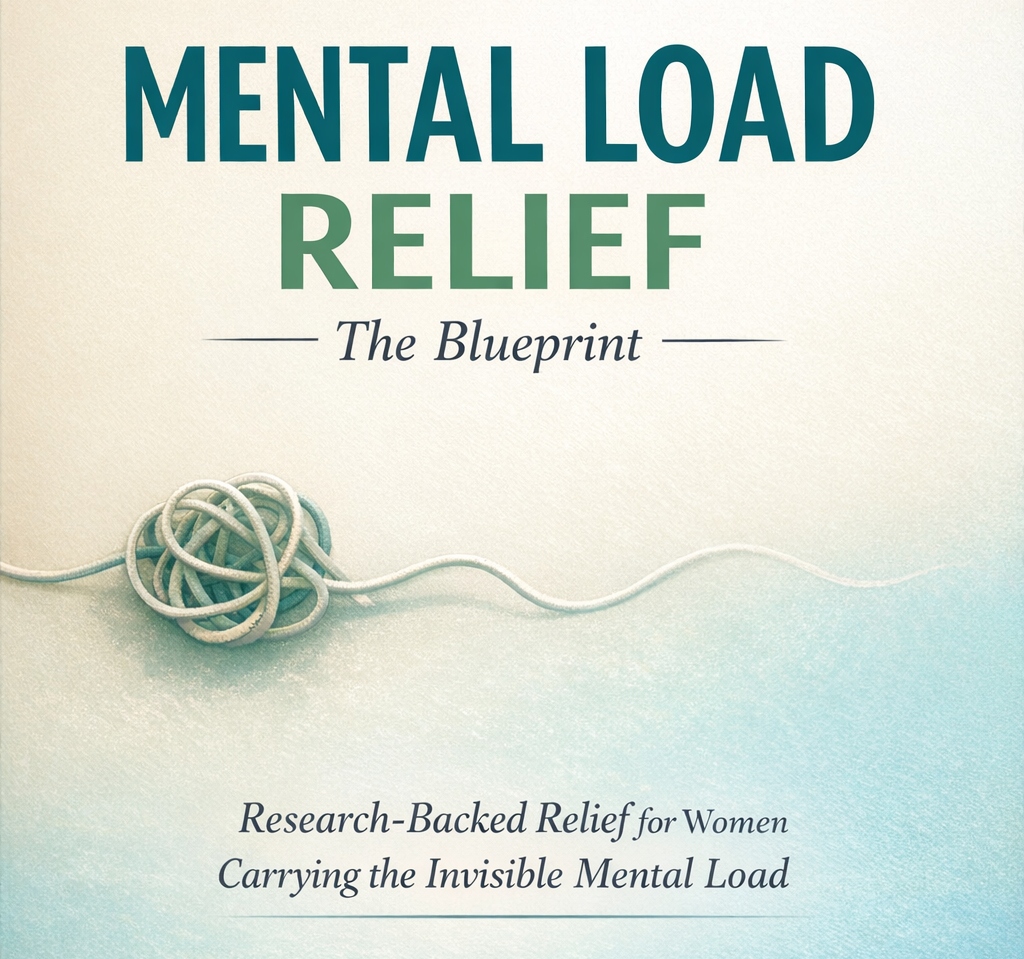
How to Handle Financial Stress: Balancing Happiness and Money
Financial stress is a common challenge that many women face, impacting both mental well-being and overall happiness. Understanding how to handle financial stress effectively can lead to a more balanced and fulfilling life. This article explores personal stories, practical tips, and professional advice to help women navigate financial pressures while maintaining their happiness.
Understanding Financial Stress and Its Impact
Financial stress arises from concerns about money management, debt, unexpected expenses, or insufficient income. For women, who often juggle multiple roles such as careers, family responsibilities, and personal growth, managing finances can become particularly overwhelming. The constant worry about money can lead to anxiety, depression, and a decline in overall well-being.
Personal Story: Emma's Journey to Financial Stability
Emma, a 35-year-old marketing professional, found herself drowning in student loans and credit card debt. The pressure affected her work performance and strained her relationships. Determined to regain control, Emma sought advice on how to handle financial stress. By creating a budget, seeking professional financial counseling, and prioritizing self-care, Emma not only managed her debt but also rediscovered her happiness and peace of mind.
Practical Tips on How to Handle Financial Stress
- Create a Realistic Budget Developing a budget is the first step in managing your finances. Track your income and expenses to understand where your money is going. Allocate funds for essentials, savings, and discretionary spending to ensure you live within your means.
- Prioritize Debt Repayment Focus on paying off high-interest debts first, such as credit cards. Consider consolidating debts or negotiating with creditors to reduce interest rates. Prioritizing debt repayment can alleviate financial pressure and improve your credit score.
- Build an Emergency Fund An emergency fund acts as a financial safety net for unexpected expenses. Aim to save at least three to six months' worth of living expenses. This fund can provide peace of mind and reduce the stress associated with financial uncertainties.
- Seek Professional Financial Advice Consulting with a financial advisor can help you create a personalized financial plan. Professionals can offer strategies for debt management, investment, and retirement planning, tailored to your specific needs and goals.
- Practice Mindfulness and Stress-Reduction Techniques Incorporating mindfulness practices, such as meditation or yoga, can help manage the emotional toll of financial stress. These techniques promote relaxation and enhance your ability to cope with financial challenges.
- Educate Yourself About Personal Finance Increasing your financial literacy empowers you to make informed decisions. Read books, attend workshops, or take online courses on budgeting, investing, and money management to build confidence in handling your finances.
Balancing Happiness and Money
Achieving a balance between financial stability and happiness involves aligning your financial goals with your personal values. Here are some strategies to maintain this balance:
- Define Your Financial Goals Clearly outline your short-term and long-term financial objectives. Whether it's buying a home, starting a business, or traveling, having defined goals provides direction and motivation.
- Invest in Self-Care and Well-Being Allocate a portion of your budget to self-care activities that enhance your happiness. Investing in your mental and physical health can improve your overall quality of life and resilience against financial stress.
- Cultivate a Positive Money Mindset Shift your perspective on money from a source of stress to a tool for achieving your goals. Embrace gratitude for what you have and focus on the positive aspects of your financial journey.
- Build a Support Network Surround yourself with supportive friends, family, or financial communities. Sharing experiences and seeking advice can provide emotional support and practical solutions to financial challenges.
- Celebrate Financial Milestones Acknowledge and celebrate your financial achievements, no matter how small. Recognizing progress boosts your confidence and reinforces positive financial behaviors.
Professional Advice on Managing Financial Stress
Financial experts emphasize the importance of proactive financial management to reduce stress. Dr. Lisa Thompson, a financial psychologist, advises, "Understanding your financial habits and addressing underlying emotional triggers can significantly impact how you handle financial stress. It's essential to develop a healthy relationship with money through awareness and intentional practices."
Integrating Self-Care and Financial Management
Combining self-care with financial management creates a holistic approach to handling financial stress. Here are some ways to integrate these aspects:
- Mindful Spending Practice mindful spending by evaluating purchases based on necessity and alignment with your values. This approach not only helps manage finances but also ensures that your spending contributes to your happiness.
- Regular Financial Check-Ins Schedule regular times to review your financial status and adjust your budget as needed. These check-ins provide opportunities to assess progress and make informed decisions, reducing uncertainty and stress.
- Engage in Activities That Promote Financial Well-Being Participate in workshops, support groups, or online forums focused on financial health. Engaging with others on similar journeys fosters a sense of community and shared purpose.
Resources for Further Assistance
If you're struggling with financial stress, seeking professional help can make a significant difference. Consider reaching out to:
- Financial Advisors: Professionals who can help you create a personalized financial plan.
- Therapists or Counselors: Mental health experts who can address the emotional aspects of financial stress.
- Support Groups: Communities where you can share experiences and gain support from others facing similar challenges.
Conclusion
Learning how to handle financial stress is essential for maintaining both financial stability and personal happiness. By implementing practical strategies, seeking professional advice, and prioritizing self-care, women can navigate financial challenges with confidence and resilience. Embrace the journey towards financial well-being and unlock a happier, more balanced life.

Instant delivery • No credit card required • Unsubscribe anytime
If You're Exhausted Even on Easy Days, The Mental Load Relief Blueprint Shows You How to Finally Feel Lighter
Download the free guide that women drowning in invisible labor are using to reclaim 2+ hours of mental space daily - without waiting for anyone else to notice how much you're carrying.
You're Not Lazy - You're Overloaded With Mental Labor
Research shows women make 35,000 decisions daily while managing invisible work that nobody else sees. Here's what that mental juggling actually looks like...
You're the Only One Who Remembers Everything
Tracking doctor appointments, school events, grocery needs, everyone's schedules - that mental tab running 24/7 creates real cognitive exhaustion. Studies show invisible labor causes 40% more mental fatigue than visible tasks.
Making 100+ Decisions While Everyone Else Just... Lives
What's for dinner? Who needs what tomorrow? Did anyone handle that thing? You're making all these micro-decisions while managing everyone's needs - and research shows this decision fatigue is stealing your energy and clarity.
Carrying Everyone's Emotional Load
Their schedules, worries, needs, moods - you're holding it all while they move through life unburdened. Data shows this emotional carrying costs women 700+ hours annually in unpaid mental labor nobody recognizes.
Your Brain Won't Turn Off at Night
Even when you're exhausted, your mind replays tomorrow's logistics and worries about what you forgot. Studies confirm mental load directly disrupts sleep quality - creating a cycle you can't break alone.
You're Everyone's Default Everything
They come to you first for every problem, question, and decision. You coordinate, plan, remember, solve - the invisible work keeping everything running. Research shows being the default parent/partner/planner is a primary predictor of burnout.
Self-Care Tips Don't Account for Your Reality
"Just take a bath" and "practice self-care" ignore that you're managing everyone else's life first. You can't remember when you last had mental space just to breathe. Generic advice was never designed for invisible labor.
The Mental Load Relief Blueprint: Your Path to Feeling Lighter
This isn't another collection of "just say no" tips that ignore your reality. These are research-backed strategies designed specifically for women drowning in invisible work - practical relief that actually fits your life.
Understanding Your Mental Load Type
Discover which of the five mental load patterns you're experiencing - from The Drowning Decision-Maker to The Exhausted-And-Guilty-About-It. Research shows personalized strategies work 3x better than generic advice.
The Brain Dump Method That Actually Works
Reduce daily decision load by 40% using cognitive offloading techniques designed for real life. Studies show getting those mental tabs out of your head creates immediate measurable relief.
Sharing Mental Load (Not Just Tasks)
Specific strategies for distributing invisible labor without becoming the manager of the management. Evidence shows even small shifts in mental load distribution create noticeable relief.
Decision Fatigue Relief Protocol
Eliminate unnecessary decision points and automate your cognitive load. Research confirms that reducing daily decisions by just 20 items significantly improves mental clarity and energy.
Boundary Scripts for Real Situations
Actual word-for-word phrases for setting boundaries without guilt or conflict. Data shows just one consistent boundary reduces overwhelm and stops you from being everyone's automatic default.
Stopping the Bedtime Worry Spiral
Cut nighttime mental rumination from 45 minutes to under 5 minutes using the Worry Window Technique. Penn State research shows this approach reduces bedtime anxiety by 35% in two weeks.
The Permission You've Been Waiting For
Stop waiting for someone to notice your invisible work before you get relief. Research shows self-validation is the first step to lightening your mental load - without needing external acknowledgment.
Grounded in Research on Mental Load and Invisible Labor
Every strategy in The Mental Load Relief Blueprint is backed by peer-reviewed studies on cognitive overload, emotional labor, and decision fatigue - not trendy wellness advice that ignores your reality.
Research-Backed Relief for Women Carrying Invisible Labor
I'm Herb, founder of Happy Mind Courses. For over a decade, I've researched the psychology of mental overwhelm, decision fatigue, and cognitive load - specifically studying what creates measurable relief for women managing multiple responsibilities and invisible labor nobody else sees.
The Mental Load Relief Blueprint isn't based on personal anecdotes or trendy wellness theories. Every strategy is grounded in peer-reviewed research on invisible labor, decision fatigue, and cognitive overload from leading psychology journals and clinical studies.
These are the same evidence-based techniques that women are using right now to finally get relief from the mental load nobody acknowledges - and reclaim the mental space they deserve without waiting for anyone else to step up.
Get Your Free Mental Load Relief Blueprint Today
Stop carrying everyone's invisible labor alone. Download the complete guide with evidence-based strategies for reducing decision fatigue, sharing mental load, and finally feeling lighter.
Completely free. No credit card required. Instant PDF download.
Download The Free Guide NowInstant delivery • Your privacy protected • Evidence-based strategies • Unsubscribe anytime



Discover Your Path to a Happier Mind
Mental Load Relief Strategies
Happy And Healthy Relationships
Mental Load in Partnerships
Professional Mental Load
Access 12 Happy Life Secrets Videos
Access Your Mental Wellness Toolkit


